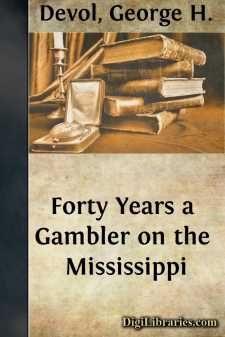History
- Africa 30
- Americas (North Central South West Indies) 50
- Ancient 68
- Asia 58
- Australia & New Zealand 8
- Canada 41
- Caribbean & West Indies 1
- Civilization 20
- Eastern Europe 12
- Europe 310
- Expeditions & Discoveries 60
- General 77
- Historical Geography 1
- Jewish 9
- Latin America 3
- Medieval 8
- Middle East 13
- Military 248
- Revolutionary 8
- Study & Teaching 5
- United States 353
- Western Europe 56
- World 13
History Books
Sort by:
by:
Rafael Sabatini
Preface The kindly reception accorded to the first volume of the Historical Nights Entertainment, issued in December of 1917, has encouraged me to prepare the second series here assembled. As in the case of the narratives that made up the first volume, I set out again with the same ambitious aim of adhering scrupulously in every instance to actual, recorded facts; and once again I find it desirable at...
more...
by:
Edward Gibbon
Chapter XXXIX: Gothic Kingdom Of Italy.—Part I. Zeno And Anastasius, Emperors Of The East.—Birth,Education, And First Exploits Of Theodoric The Ostrogoth.—His Invasion And Conquest Of Italy.—The Gothic Kingdom OfItaly.—State Of The West.—Military And Civil Government.—The Senator Boethius.—Last Acts And Death Of Theodoric. After the fall of the Roman empire in the West, an interval of...
more...
Louis XVI. possessed an immense crowd of confidants, advisers, and guides; he selected them even from among the factions which attacked him. Never, perhaps, did he make a full disclosure to any one of them, and certainly he spoke with sincerity, to but very few. He invariably kept the reins of all secret intrigues in his own hand; and thence, doubtless, arose the want of cooperation and the weakness...
more...
PREFACE. In preparing the pages that follow, the writer has had in view the desirability of familiarizing the youth of Georgia with the salient facts of the State's history in a way that shall make the further study of that history a delight instead of a task. The ground has been gone over before by various writers, but the narratives that are here retold, and the characterizations that are here...
more...
by:
Edward Gibbon
Chapter XLIX: Conquest Of Italy By The Franks.—Part I. Introduction, Worship, And Persecution Of Images.—Revolt OfItaly And Rome.—Temporal Dominion Of The Popes.—ConquestOf Italy By The Franks.—Establishment Of Images.—CharacterAnd Coronation Of Charlemagne.—Restoration And Decay Of TheRoman Empire In The West.—Independence Of Italy.—Constitution Of The Germanic Body. In the...
more...
by:
Filson Young
THE HOUR OF TRIUMPH From the moment when Columbus set foot on Spanish soil in the spring of 1493 he was surrounded by a fame and glory which, although they were transient, were of a splendour such as few other men can have ever experienced. He had not merely discovered a country, he had discovered a world. He had not merely made a profitable expedition; he had brought the promise of untold wealth to...
more...
INTRODUCTION No library of Court documents could pretend to be representative which ignored the famous "Memoirs" of the Duc de Saint-Simon. They stand, by universal consent, at the head of French historical papers, and are the one great source from which all historians derive their insight into the closing years of the reign of the "Grand Monarch," Louis XIV: whom the author shows to be...
more...
About the close of the last century several of the Northern sovereigns took a fancy for travelling. Christian III., King of Denmark, visited the Court of France in 1763, during the reign of Louis XV. We have seen the King of Sweden and Joseph II. at Versailles. The Grand Duke of Russia (afterwards Paul I.), son of Catherine II., and the Princess of Wurtemberg, his wife, likewise resolved to visit...
more...
by:
George H. Devol
BOYHOOD DAYS. "I'll serve his youth, for youth must have his course, For being restrained it makes him ten times worse; His pride, his riot, all that may be named, Time may recall, and all his madness tamed." My Dear Reader: I first saw the light of day in a little town called Marietta, at the mouth of the Muskingum River in the State of Ohio, on the first day of August,...
more...
BOOK I.—CHAPTER I. Parentage of Cyrus the Younger. After the death of his father he is accused of plotting against his brother Artaxerxes, who imprisons him, but releases him on the intercession of his mother, and sends him back to his province, where he secretly collects forces, of which a large proportion are from Greece, to make war on his brother. 1. Of Darius and Parysatis were born two sons,...
more...











